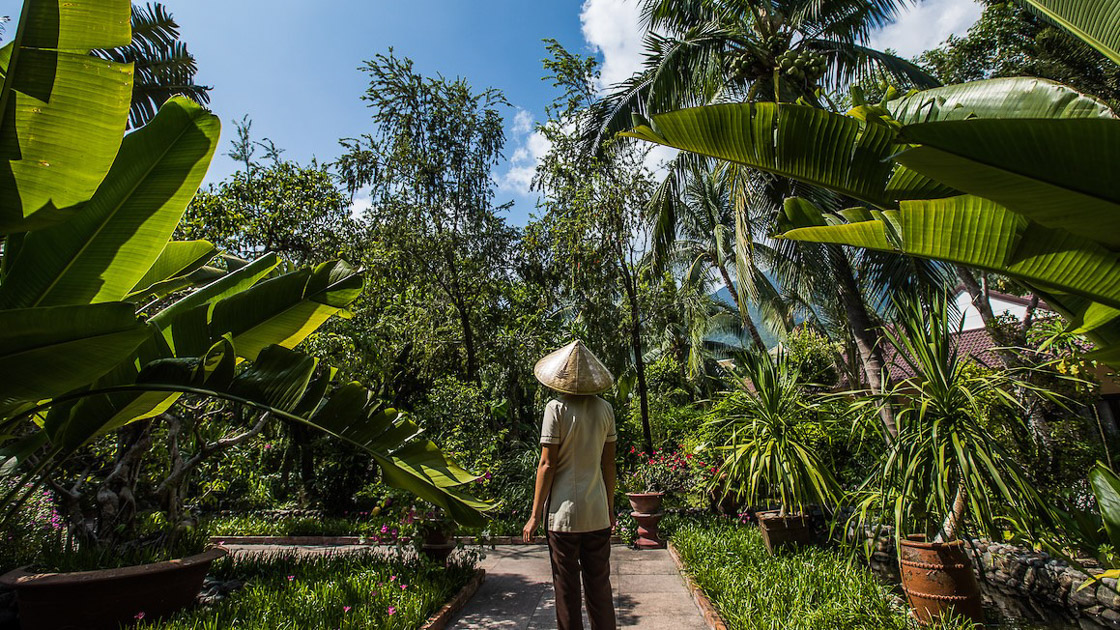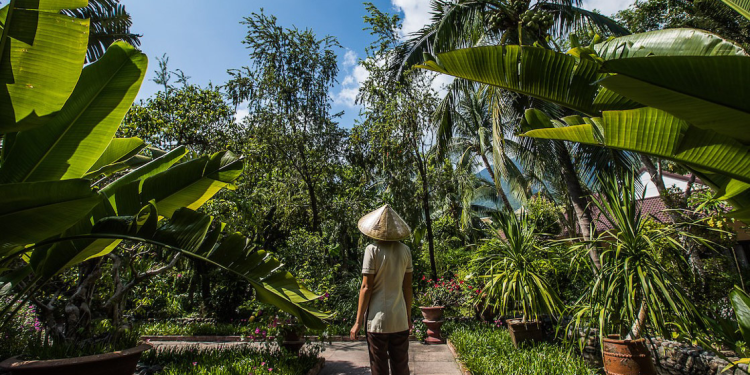Thua Thien Hue province, home to over 20 million residents, faces the brunt of climate change, with extreme heat, drought, and saltwater intrusion severely affecting local farmers. One such farmer, Martha Huynh Mau Phuong, once thrived as a fish farmer along the Sia River, which has now transformed from a vital source of sustenance to a symbol of despair.

The Impact of Erratic Weather
Phuong, hailing from Quang Phu commune in Quang Dien district, recounts her heartbreaking experience of losing 2,200 fish due to a drastic drop in the river’s water level and pollution from waste. “A long heat wave from May to August left the river uninhabitable for my fish,” she explained. The previous year’s heavy rains had caused floods that washed away her stock, compounding the challenges she faced. With financial burdens mounting and a debt of 100 million dong (approximately $4,000) to the bank, Phuong feels trapped and uncertain about her family’s future.
The plight of Phuong is shared by about 50 other households who used to farm fish in the river. With a significant decline in fish farming, many are left with few viable options for survival. “Only a few people still try to raise fish, and that is because they do not know what else to do,” she lamented.
Adapting to Climate Change
The ongoing struggles of local farmers highlight the profound impact of climate change on their livelihoods. Environmental experts note that the frequency and intensity of storms and tropical depressions have escalated, leading to severe flooding and water shortages. As a result, the local agricultural community faces challenges from prolonged droughts and saltwater intrusion, which further diminishes their capacity to grow crops.
The Ministry of Planning and Investment reported that Typhoon Yagi, one of the most powerful storms in three decades, caused widespread destruction in September, killing hundreds and affecting thousands of homes and crops. The consequences of these natural disasters are dire, especially for farmers whose livelihoods depend on stable weather patterns.
A Community in Crisis
Phan Dinh Phuc, head of the local agricultural cooperative, notes that the Quang Phu commune, primarily engaged in farming and traditional handicrafts, is experiencing a loss of interest in agriculture. Many farmers have returned their lands to the cooperative due to the unprofitability of farming, facing ongoing crop failures and debts.
Another farmer, Ho Dac Viet, emphasizes the rising pest populations and the increased use of pesticides due to extreme weather, further impacting health and the environment. His family struggles with diminishing yields, exacerbated by a harsh climate that has made farming increasingly difficult.
Seeking Solutions Amid Hardship
The situation has forced Phuong and her husband to seek alternative sources of income, becoming motorcycle taxi drivers while still attempting to catch fish and collect firewood. Despite their relentless work, the couple struggles to make ends meet, often contemplating the sale of their boat, which serves as their home and livelihood.
As the winter approaches, Phuong worries about the increased difficulties they will face. The couple’s financial challenges have led to their children being pulled from school, emphasizing the dire impact of climate change on their future.
In a region marked by the devastating effects of climate change, the stories of Phuong and her fellow farmers underscore the urgent need for adaptive strategies to support sustainable agriculture and livelihoods in the face of an uncertain climate.




